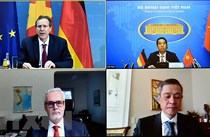
Vietnamese Deputy Minister of Foreign Affairs To Anh Dung and State Secretary of Germany’s Federal Foreign Office Miguel Berger co-chaired the sixth meeting of the two countries’ strategic management group held in the form of videoconference on April 16.

The Steering Committee of the project “Support to Vietnam for the Implementation of the Paris Agreement” (VN-SIPA) held its second meeting in Hanoi on April 14 with the participation of representatives from certain ministries, sectors, and localities.
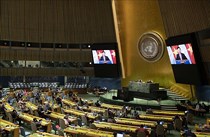
Vietnam for the second time assumed the role of rotating President of the United Nations Security Council (UNSC) for the 2020-2021 tenure this month, thus making a new and important imprint in the process of transforming from a participant to an active and proactive UN member.
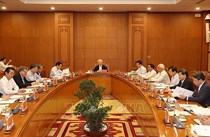
The President of Vietnam during the 2016-2021 tenure has effectively fulfilled his tasks, jurisdiction and duties in accordance with the Constitution, as well as tasks assigned by the Politburo and the Secretariat during the, a report has said.

Vietnam is one of the pioneering countries in building a national digital transformation programme, with the three main pillars of digital government, digital economy, and digital society.
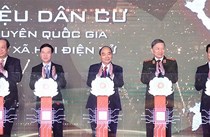
The national database on population, and a citizen ID card issuance and management system made debut on February 25 in the presence of Prime Minister Nguyen Xuan Phuc.

Preserving heritage is now the top priority of UNESCO and countries having globally-recognised heritage, including Vietnam.
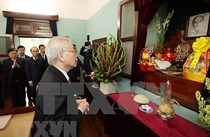
Party General Secretary and State President Nguyen Phu Trong on February 10 offered incense to late President Ho Chi Minh at House No.67 in Hanoi on the occasion of the 91st founding anniversary of the Communist Party of Vietnam and the traditional Lunar New Year (Tet).
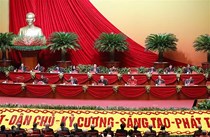
Russian news agency Sputnik laid stress on the sound leadership of the Communist Party of Vietnam (CPV) in its latest article posted on February 3, describing it as a key factor for the success of the revolutionary cause in the Southeast Asian country.
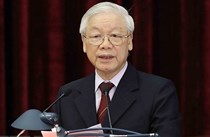
On February 1, at the closing session of the 13th National Party Congress, the congress’s Presidium announced the results of the election of the Politburo, the Party General Secretary, the Secretariat, the Inspection Commission, and the head of the Inspection Commission of the 13th Party Central Committee.

The 12th National Party Congress took place from January 20 to 28 in Hanoi. It was held 30 years after the entire Party, army and people implemented Doi Moi (reform), which was initiated at the 6th Party Congress (December 1986).
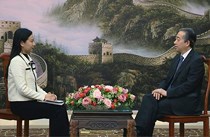
The success of the 13th National Congress of the Communist Party of Vietnam (CPV) will be a strong and firm political guarantee for the development of socialism in Vietnam and provide a new driving force for the country’s socio-economic development, said Chinese Ambassador to Vietnam Xiong Bo.

The 10th National Party Congress took place from April 18 to 25 in Hanoi. The congress held that after 20 years of renewal, Vietnam has achieved great achievements of historical significance.

The ninth National Party Congress convened in Hanoi from April 19-22, 2001. The event reviewed 15 years of renewal and drew lessons from the process, thus drawing up and perfecting guidelines and defining national development strategies for the first two decades of the 21st century.
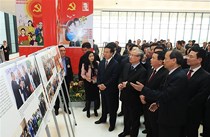
A photo exhibition was opened on January 22 at the National Convention Centre in Hanoi by the Party Central Committee’s Commission for Information and Education and the Vietnam News Agency (VNA) in celebration of the 13th National Party Congress.

The fourth National Party Congress held from December 14-20, 1976, reviewed the resistance war against the US imperialists for national salvation, and guiding the nation towards socialism.
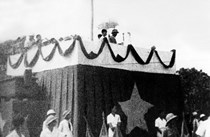
The country’s achievements have once again testified to the fact that the Communist Party of Vietnam (CPV) is the only organisation and force leading the revolution and the entire people to obtain glorious successes over the past 90 years.

The third National Party Congress took place on September 5-10, 1960 in Hanoi to review 30 years of Party leadership and put forth theoretical and practical lessons of the Vietnamese revolution under the Party’s leadership.
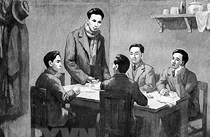
The First Congress of the Communist Party of Vietnam took place from March 27-31, 1935, marking the restoration of party organisations from the central to local levels, from home to abroad and at the same time unifying revolutionary movements.
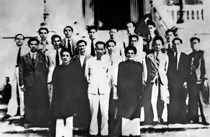
Since it was set up in 1930, the Communist Party of Vietnam convened 12 national congresses, which marked important historical milestones of the country, summarising achievements as well as lessons of Vietnamese revolution and sketching out the future development orientations for the nation.